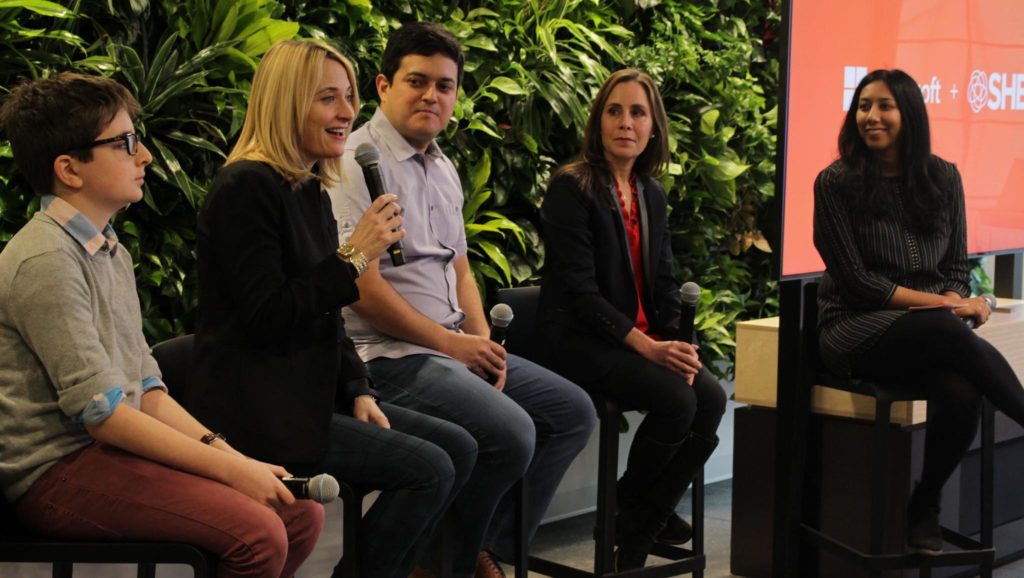Managing your family’s digital life

As the product and strategy lead for the family audience at Microsoft and a mom of two, I spend a lot of time and energy thinking about the role technology and devices plays within families, including my own. This time of year, it is an especially important topic, as so many holiday wish lists have tech gifts at the top and it can be overwhelming to figure out how to manage.
With that in mind, earlier this month I sat down with a few experts, including Polly Palumbo, Ph.D. researcher and psychologist; Laurie Wolk, author and motivational speaker; our very own Henry Ipince, senior program manager at Microsoft; and 8th grader Jack. We had a great discussion and I’d love to share a few of my takeaways that might help you and your family.
- Start with the skills you want your family to embody in the real world and set your online rules from there. Polly highlighted the idea that the skills that you want your kids to exhibit online are the same you expect from them offline, such as empathy, politeness and respect.
- Have an ongoing dialogue – we understand parents often struggle with the desire to empower their children to learn and embrace all the amazing things technology enables kids to achieve, while also feeling a bit overwhelmed or lost about how to maintain a healthy relationship with technology. By having a conversation to understand the “why” behind things, you can then use tools such as screen time management to establish agreed-upon guardrails. And as Henry pointed out – there are often times when exceptions need to be made and an open dialogue keeps that door open.
- Modeling behavior you want to see – it’s not just about telling kids the right things to do; parents need to be role models in practicing the behaviors they want to see. Laurie talked about how it’s important to recognize that we are all trying to figure this out together – by creating boundaries for all of us, we are able to hold each other accountable.
- Trust and respect – empower your kids to set their own limits so they’re practicing limiting themselves, impulse control and judgment early on. Use tools as guardrails so kids develop the ability to make good choices and understand consequences. Polly explained how we should empower our kids to explain the why behind their wants and needs for screen time and advocate for themselves. Give them the confidence and create a relationship of mutual trust and respect.
- Microsoft has easy to use tools that can help – family settings on Xbox and Windows include screen time limits, content filters and purchase controls. These tools can help parents manage their kids’ responsible digital habits. Family settings offer more than 15 customizable tools that provide peace of mind across four key areas: screen time management, purchase limits, content filters and privacy. These tools span your Windows 10 and Xbox One devices, and even your Android phone using Microsoft Launcher. More information is available at Microsoft.com/family.
While it’s normal for parents to have questions and concerns about how their children use technology, our discussion reinforced the positive impact it can have on families – from helping shy kids become more independent and make friends to creating collaborative experiences outside of the classroom or even gaming as a family. One of my favorite learnings from the event was an analogy Laurie drew – you wouldn’t send a toddler into the pantry to eat whatever they want, whenever they want with no oversight. We can think about digital habits in the same way; it’s important to help our kids understand what’s healthy and how to make the right choices. At Microsoft, building tools to help families is an area on which we continue to focus, and a conversation that’s just getting started.
